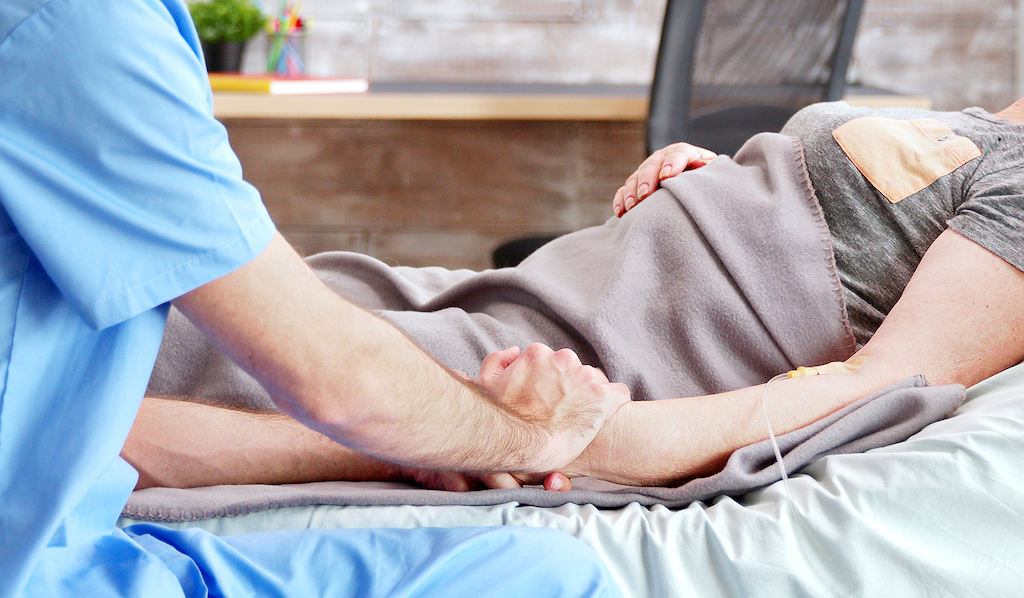By: C. R.
The Committee for Legal and Ethical Issues of the Medical Chamber has expressed numerous reservations regarding the proposed law on assistance in voluntary end-of-life decisions. As stated in one of their resolutions, the committee believes that assisting in ending life is not a duty of a physician. The proposed law is also opposed by the Slovenian Medical Association.
The Committee for Legal and Ethical Issues addressed the draft law published on the Freedom Party’s website. This proposal has already been submitted to parliamentary procedure as of Monday. The committee maintains significant concerns, as outlined in the Medical Ethics Commission’s opinion from May 2023. At that time, the commission assessed the law proposed by the Association for Dignified Aging, Silver Thread, as carrying a high ethical risk. They argued that it burdens doctors with a practice explicitly opposed by the code of medical ethics.
Doctors heal; they do not kill!
The committee opposes several provisions in the draft, including the classification of assistance in voluntary end-of-life decisions as a medical procedure. According to the committee, such assistance does not qualify as a medical intervention.
The clause regulating participation and conscientious objection was deemed entirely inappropriate. The committee stated: “Conscientious objection applies to medical interventions that are lege artis (in accordance with professional standards), necessary, and lawful. Assistance in suicide is neither lege artis nor, likely, necessary.”
The committee believes that no one, including healthcare workers, should be obligated to participate in such procedures, nor should they face discrimination for participating or not participating.
They also criticise the draft law for creating unjustified distinctions between healthcare workers and others. While healthcare workers are required to participate unless they claim conscientious objection, other individuals can refuse without invoking such objections.
The committee further highlights that under the draft, individuals requesting assistance in suicide due to suffering are not required to accept any other options for alleviating their suffering. “Assistance in suicide can be chosen as the first and only response to suffering. Furthermore, the definitions of severe chronic illness and disability remain vague and open to interpretation in current medical practice,” they warn.
They also highlight that under the draft law, decisions regarding the existence of a severe chronic illness or disability as a condition for granting the right to assisted suicide will be made by bodies in which only experts who do not oppose such assistance may participate. “In the opinion of the Committee for Legal and Ethical Issues, this represents the same ethical lapse as if only experts who oppose assisted suicide were allowed to make such decisions,” they wrote.
They deemed the explanatory burden placed on the attending physician as unreasonable, stating that “it requires knowledge of all treatment options available worldwide for the illness or condition in question, where treatment has been exhausted and any alleviation of suffering, other than ending life, is deemed unacceptable.”
The proposed law was also discussed today at a session of the Coordination of Medical Organisations, which includes the Medical Chamber of Slovenia, the Slovenian Medical Association, the Union of Doctors and Dentists of Slovenia (Fides), and the Professional Association of Private Doctors and Dentists.
Matija Cevc, Secretary of the Slovenian Medical Association, stated that regardless of the title of the proposed law, it constitutes euthanasia: “Because the deliberate, premeditated termination of life is euthanasia.” He added that they support the positions of the Medical Ethics Commission of the Republic of Slovenia and the World Medical Association, both of which oppose any involvement of doctors in shortening life.
They also believe that the law will lead to “ageism and euthanasia bullying, as in countries where such or similar laws are in effect, there is a drastic increase in the number of euthanasia cases before the summer months”.
Cevc further argued that the provision in the proposed law exempting doctors from directly performing euthanasia changes nothing: “It is well known that whoever holds the bag for the thief is also a thief. So, if I prepare a prescription or equipment to enable suicide, I am complicit in the process and bear the full moral weight on my conscience, which is practically unacceptable for us,” he stated at a press conference following the coordination meeting.
Voice for Children and Families: Share your testimonies on the value of life, even during difficult times!
Voice for Children and Families announced that as part of their preparations for a referendum against the poisoning of the sick and elderly, they are collecting personal testimonies on the value and dignity of human life, even in times of hardship and suffering. “We will publicly share these testimonies to raise awareness of these critical issues. Please sign your testimony with your name, surname, and location (e.g., Janez Novak, Sodražica). If you do not wish your name and surname to be published, simply omit them and write ‘anonymous’ under the text. We sincerely thank everyone in advance for sharing their valuable experiences and contributing to a fairer and more compassionate Slovenia. Send your testimonies to: [email protected]”.

